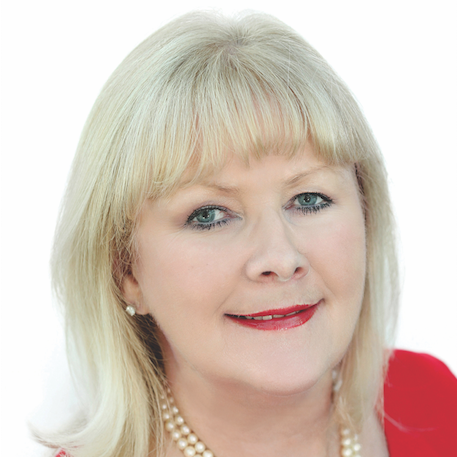
Marie O’Connor
Chair, 30% Club Ireland
There’s a lack of women in senior leadership positions in Irish organisations — yet their inclusion in these roles makes sound business sense. So what can be done to improve the situation?
The conversation about how to get more women into business leadership roles has continues. And huge advances have undoubtedly been made. Yet, incredibly, in Ireland in 2016, it seems women are still under-represented at senior levels in many organisations.
Figures from a report called Women in Management 2015 show a steady decline in female participation in higher ranks of management. Of the businesses surveyed, women were found to comprise just over one-third (34%) of Managers Level 2; just 30% of Managers Level 1; with 23% at Executive Director/Group Manager level. In total, just 14% of the companies surveyed had a female CEO/Head of Operations.
Gender balance
The report was produced in conjunction with Dublin City University and 30% Club, a group of 150 Chair/s CEO’s in Irish business committed to achieveing better gender balance at all levels in their organisations through volunltary action — and therefore a more diverse pool of talent for all businesses. “Look at the population of women in the world,” says Marie O’Connor, Chair of 30% Club Ireland. “Women have very large purchasing power. Why wouldn’t you want to reflect in your company leadership the diversity of your customers?”
O’Connor also points out that various studies show the correlation between women’s involvement at board level with more company profitability and reduction of risk. Women in leadership positions promote more inclusive discussion and greater innovation, too; and they improve company culture and lead to better corporate governance. Finally, if a company is trying to attract the best talent — “And what company isn’t?” she asks — it’s important for them to be able to access 100 per of the available talent pool, particularly when it comes to attracting millennial employees. From a moral standpoint, promoting women to senior roles is the right thing to do. “But this isn’t just a ‘women’s issue’,” insists O’Connor. “It’s a business issue, a talent management imperative and a societal issue.”
It’s true that some sectors have better representation of women at senior levels than others. The Women in Management 2015 report underlines that “financial services, professional services and technology have reasonably good participation of women at Manager Level 2 (40-43%). However, female participation rates fall sharply at more senior ranks of management.”

Role models
Yet, in Ireland, O’Connor believes that there has been a mindset shift among the business community in all sectors that things have to change. “When I’ve met chairman and Chief Executives, everyone is on board, with very few exceptions,” she says. “Companies want help in understanding how they can be better at this, and most have begun to develop a diversity strategy. What’s interesting, though, is that there’s a generational shift, too: a lot of business leaders in Ireland have both sons and daughters who are trying to pursue a career. And that may not have been the case 25 years ago.”
Still, there are various barriers preventing women from securing leadership roles. “A major one is a lack of role models,” says O’Connor. “Plus, business leaders will only be convinced by something if there is a business case for it; so every company needs to be able to articulate in its local market why diversity makes good business sense. When they do that, business leaders will come on board and be influenced to drive change.”
Promoting awareness
Highlighting the problem at root level with girls (and boys) of secondary school age is vital; as is making sure that young women in organisations have mentors who can advise them and help them develop a career network. “Women who have succeeded have a special role to play in making sure they help other women to do the same,” says O’Connor.
Awareness of unconscious bias is also key. “Colleagues need to recognise their unconscious bias, so that, when recruiting, they encourage women to apply for roles,” says O’Connor. But, she says, awareness of the issue generally is important. Fullstop. “Just talking about these topics within your company shares awareness of the issue with other people — and that can be tremendously helpful.”

